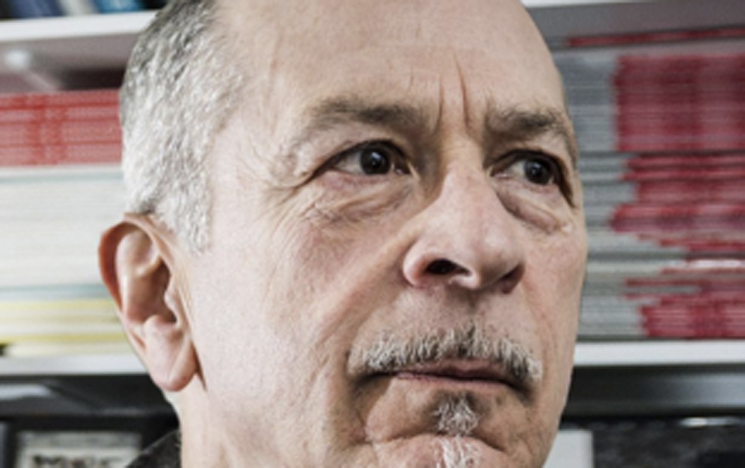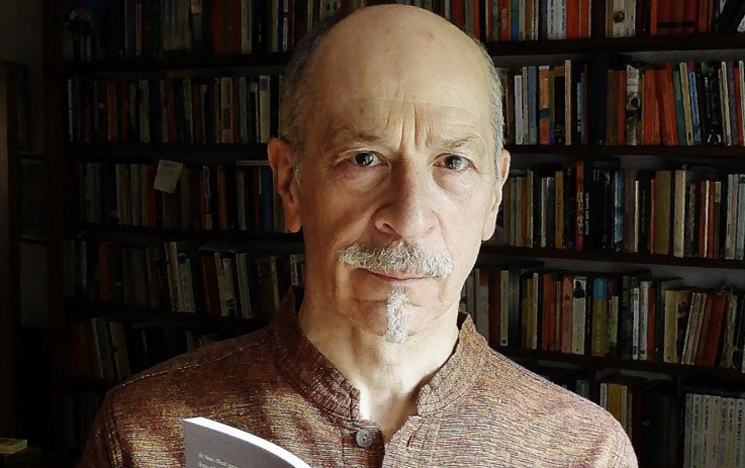Anthony Ferner
Anthony is an author who has recently published his second book 'Inside the Bone Box' with Fairlight books. He has been writing fiction since the 1990s and published his first book Winegarden in 2015 with Holland Park Press.

Anthony's story
Anthony studied Politics, Philosophy and Economics at Oxford before gaining his Masters and DPhil in Sociology and Social work from Sussex.
He was a professor in international business and published numerous research articles and monographs until he made the transition from academia to writing upon his retirement in 2014.
Inside the Bone Box, published by Fairlight Books in July 2018.
What attracted you to studying at Sussex?
After finishing my undergraduate degree and working for a while in Paris, I was casting round for what to do next. Eventually I decided on a postgraduate course in Sociology as that was the part of my degree I’d got most out of. I chose Sussex because they had an interesting-looking Sociology Masters, including Cultural Sociology and the Sociology of Development. I stayed on to do my doctorate (on economic development in Peru) with a supervisor from the Institute of Development Studies.
What did your time at Sussex teach you?
That there’s a link, not always apparent in academia, between academic study and the world beyond.
Any stand out Sussex memories?
The opportunity to mix with a very diverse collection of doctoral students from all over the world. A couple of them are still friends, several decades later.
Sum up your time at Sussex in 3 words:
Becoming a researcher.
When did you move from publishing academic books to writing fictional novels?
I started writing fiction about 25 years ago as a distraction from my day job as an academic. I began with screenplays, and then – once I realised that I’d a better chance of winning the lottery than getting a film made – novels and short stories. It took about twenty years to get anything published. After I retired from academia in 2014, I had more time to devote to fiction. My first novel came out in 2015, and my third is published this May.
What are the key differences between academic writing and fiction?
As for the differences between academic writing and fiction, the former is highly structured, and you tell the reader exactly what you’re up to and why. Everything is (or should be) spelt out and transparent, including your methods. Fiction writing is much ‘slyer’, in that you want stuff to be happening under the surface – the deeper themes beneath the apparent story – and you don’t always want the reader to be sure where you’re taking them. Also, in fiction you’re trying to elicit an emotional response from the reader, as well as an intellectual one.
Despite the differences, though, I did learn a lot about basic writing discipline from my academic work: the need for structure and flow, how to link one element to the next, how to ensure there’s an overall ‘arc’ to the story you’re telling, economy of expression; and perhaps above all the idea that you’re basically trying to communicate ideas to a reader.
What did you find most challenging about writing a book?
How to capture often very fleeting ideas that come to you almost like daydreams, and then turn them into a story with some narrative development to it. Also challenging is the sheer Chinese puzzle of fitting the parts together and making them ‘tick’. And finally, once you’ve got ideas down on paper, the relentless, seemingly endless, job of editing and re-editing and re-re-editing...
You explore family relationships in Inside the Bone Box in great detail. What, if any, influence did your studies in sociology have on your writing?
That’s an interesting question. I didn’t actually study family sociology at Sussex, so there’s not a direct connection. However, I did study power – e.g. in relation to Latin American underdevelopment – and families are miniature sites for the exercise of power relations. Of course, practically everyone has the opportunity to observe family dynamics close-up, and as they say, it’s a good idea to write about what you know. It’s also worth noting that my time in Peru doing the fieldwork for my doctorate provided quite a bit of material for my new novel.
In my career as a researcher I focused on work and employment relations, and I think this has influenced my concern in all my novels to explore how a character’s working life influences their sense of self and their personal life, and vice versa. So protagonists of my novels have been, respectively, an uncertain theoretical physicist, an obese brain surgeon, and a muddled literary translator.

For Inside the Bone Box, why were you inspired to write about a neurosurgeon?
My siblings are both medical consultants, one of them a neurologist, so I was interested in the work that doctors do, and had a ready source of technical advice. And the brain and the strange workings of the mind, as explored by writers such as Oliver Sacks, undeniably have a strong allure for the lay person.
In my new novel, Life in Translation,the main character is a literary translator. I was attracted to the theme of translation partly for its value as metaphor, but also because of my longstanding fascination with languages.
What single piece of advice would you give to someone considering writing a book?
You will need supportive but critical feedback on your drafts (of which there will be many). The best way of getting it is to join an experienced writing group.
Life’s biggest lesson so far?
Keep at it. Dogged persistence is often as important as talent.
Describe your perfect day:
The revocation of Brexit, to be enjoyed in the company of my nearest and dearest.